On the run: tens of thousands of people flee conflict-hit Sudan
Donate now to help those affected by the Sudan emergency
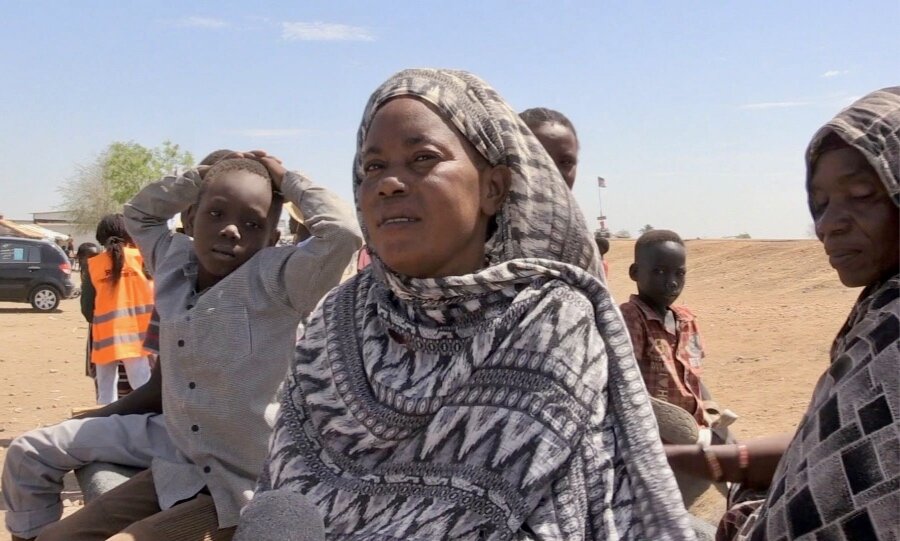
Not so long ago, Naimat Khamis was a tea maker in Sudan’s capital Khartoum — a place she once thought offered a better, safer life than her native South Sudan.
But this week, she found herself crossing a dusty border back into her homeland— as one of tens of thousands of people fleeing fighting now raging in Khartoum and elsewhere in the country.
“We had to run as quickly as possible,” recalls Naimat, wearing a grey shawl and surrounded by a scrum of displaced women and children.
“From here we want to go to our relatives, because we have suffered a lot,” she adds, describing hiding inside a car that drove her to the border.
Roughly 100,000 people, many of them women and children, have fled Sudan for neighbouring countries in recent weeks, according to the UN Refugee Agency (UNHCR). Those numbers could swell to as many as 800,000, it says, as the conflict continues.
Most will likely be Sudanese. But up to 200,000 refugees from other countries who once sought safety in Sudan may return home, and all will face uncertain futures.
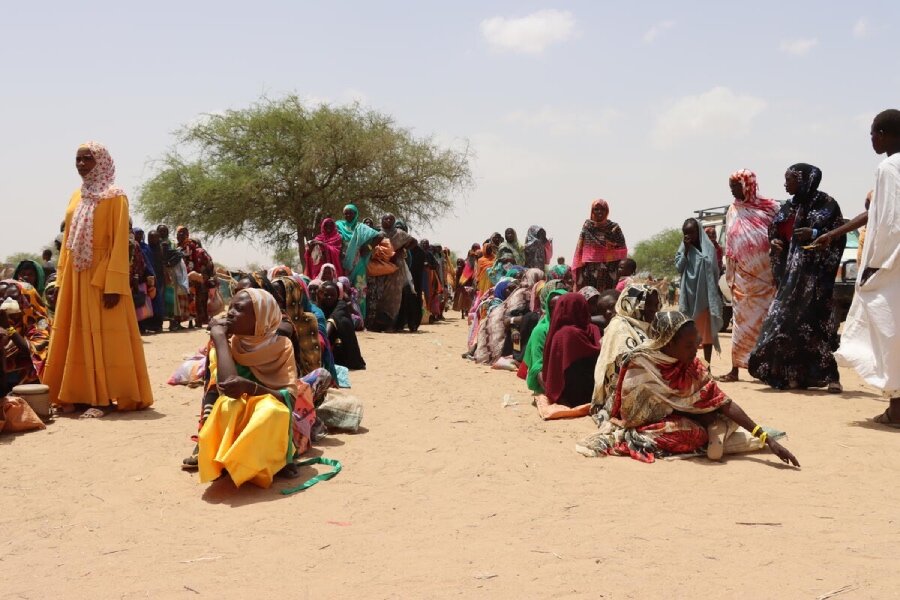
Many of those fleeing are heading to South Sudan and Chad. Both countries are already grappling with some of the world’s highest hunger levels, which risk climbing further as Sudan’s unrest halts vital cross-border trade and sends food prices soaring. In South Sudan alone, the cost of a basic food basket has already risen by more than a quarter in some border areas.
Tens of thousands of people are also crossing into other neighboring countries. In Egypt, the World Food Programme (WFP) is distributing energy-packed, fortified date bars to new arrivals. In northwestern Ethiopia, WFP is preparing to deliver high energy biscuits. In Chad, WFP has already distributed food to 12,000 refugees in one week.
In both South Sudan and Chad, the onset of the rainy season and lean season between harvests — not to mention funding shortfalls for WFP’s operations — threaten to further complicate the humanitarian response.
“It’s a perfect storm,” says Pierre Honnorat, WFP Country Director and Representative in Chad.
They need hope
Many fleeing Sudan - like 17-year-old Sudanese refugee Hassan Abdallaziz, who arrived in South Sudan without his family - have few resources or options.
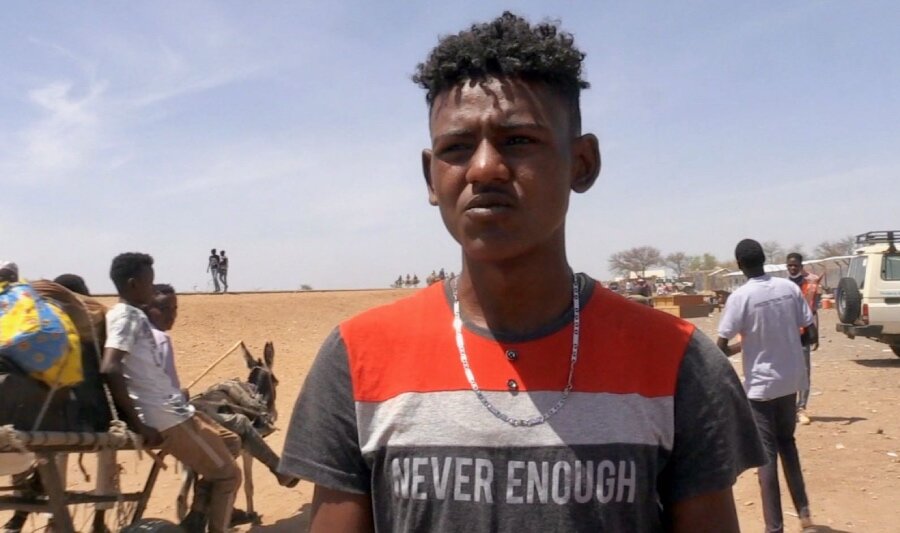
“Nothing is good in (Sudan),” says Hassan, whose father is dead and mother lives in Saudi Arabia. “There are no jobs, and because of the war, anyone can take your money.”
Hassan hopes to find a job in South Sudan, to support two brothers now living with his aunt. But in a country where more than seven million people face severe hunger, his chances of prospering appear daunting.
So far, more than 30,000 people have crossed into South Sudan, many of them returnees like Naimat. WFP is providing hot meals to more than 2,000 people arriving daily at a transit center at the main border crossing point. We are also screening women and children for malnutrition and providing assistance as needed.
“Many are tired, traumatized — they’ve walked for days. They’re coming with the clothes on their backs,” says Mary-Ellen McGroarty, WFP Representative and Country Director in South Sudan. “They need food, they need shelter, they need basic medial care. And they need hope — and an opportunity to rebuild their lives and livelihoods.”
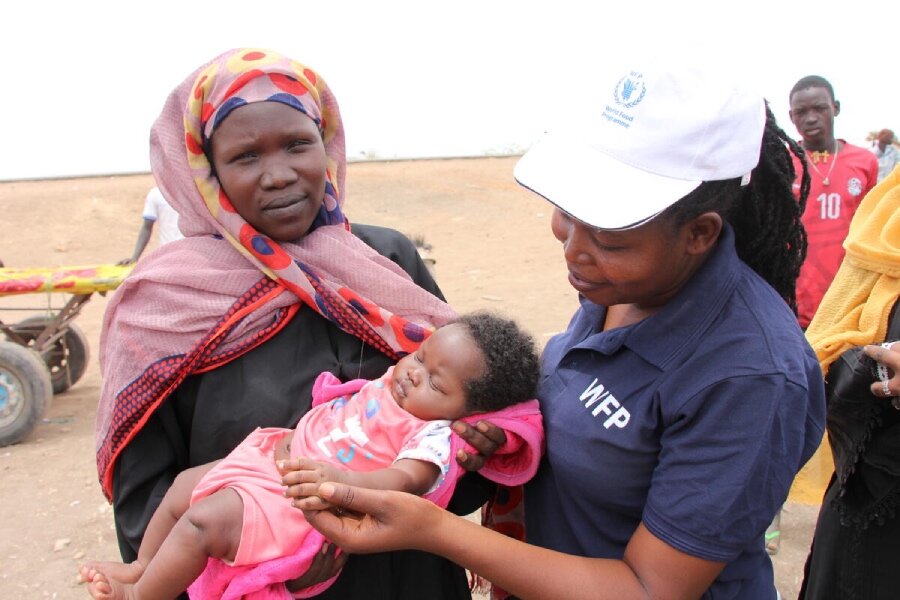
But she fears what will happen next. The rains and hungry season are arriving. WFP has already been forced to cut its food assistance in South Sudan for lack of funds.
“This crisis couldn’t come at a worse time,” McGroarty says, adding, “we will have to prioritize again between hungry people.”
They burnt everything
In Chad, WFP is also delivering food assistance to newcomers – enough sorghum, pulses, oil and salt to feed about 20,000 people.
Those receiving it include women like 50-year-old Aicha Madar, who joined thousands crossing Sudan’s border into Chad after fighters arrived in her village.
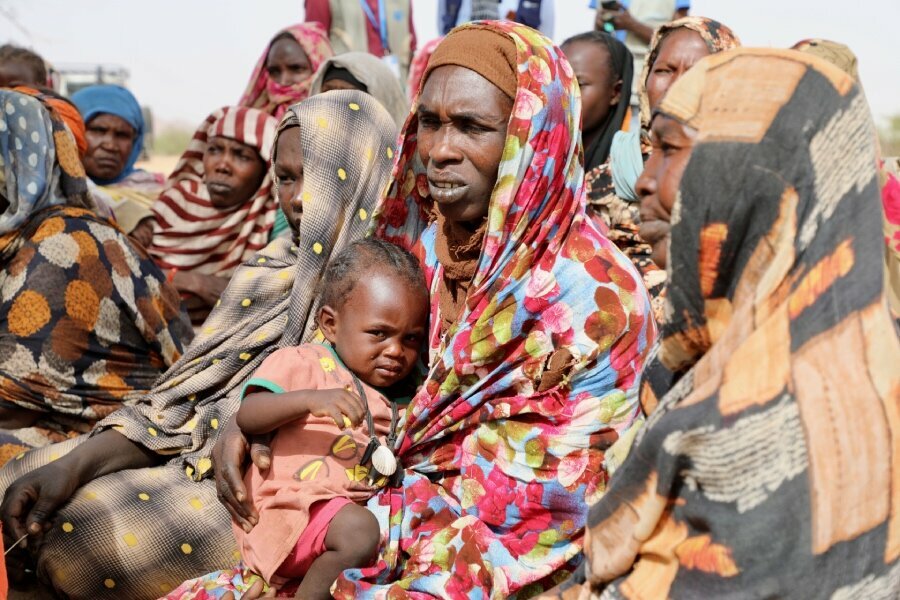
“The armed groups burned everything,” says Aicha, as she cradles her year-old daughter Fatima in her lap.
“Here, we have nothing, as we lost everything there,” she says. “We just go to the bush to get bundles of wood to sell.”
While Chad closed its border with Sudan after fighting there broke out earlier this month, refugees like Aicha can still arrive through several entry points. Before being resettled by UNHCR, they remain near Chad’s frontier with Sudan, sitting and sleeping under trees barely able to protect them from a searing heat and sun.
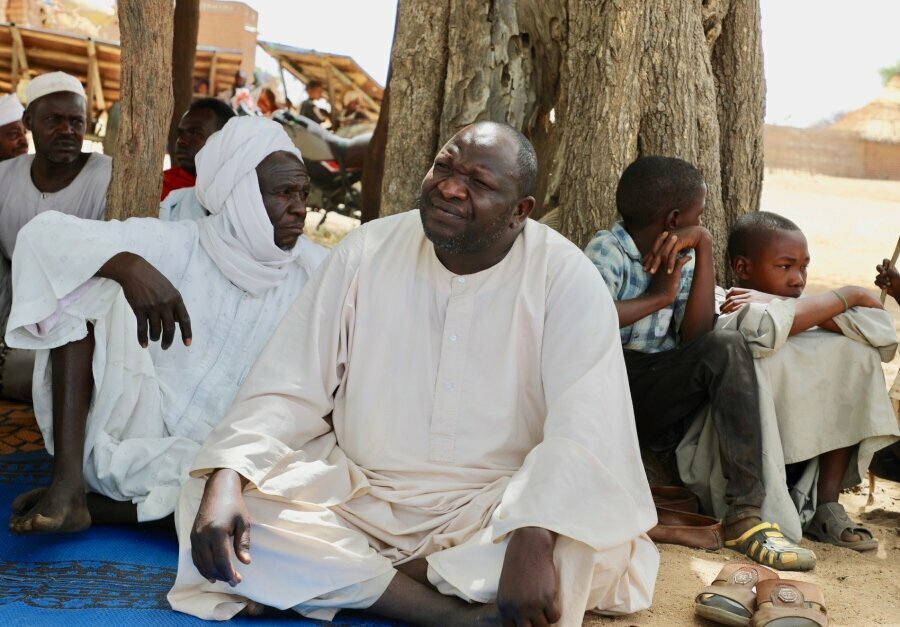
“We prefer to stay in Chad for the moment and see how the situation develops,” says Ali Adam Ibrahim, who left his native Sudan after hearing news of clashes in the capital, Khartoum.
As with South Sudan, the refugee influx comes weeks before the onset of Chad’s lean season, expected to leave an estimated 1.9 million people severely food insecure. Pounding rains arriving about the same time threaten to turn swathes of desert into rivers, imperiling deliveries of key food assistance to the refugees and other vulnerable groups.
Meanwhile, a funding crunch will likely force WFP to halt its assistance to all refugees in Chad, says Country Director Honnorat. This includes more than 400,000 long-term refugees in the country, most of them Sudanese.
Already, WFP has been forced to halve the numbers of refugees and internally displaced people it planned to assist in the country. “There is absolutely no money for them,” Honnorat says.
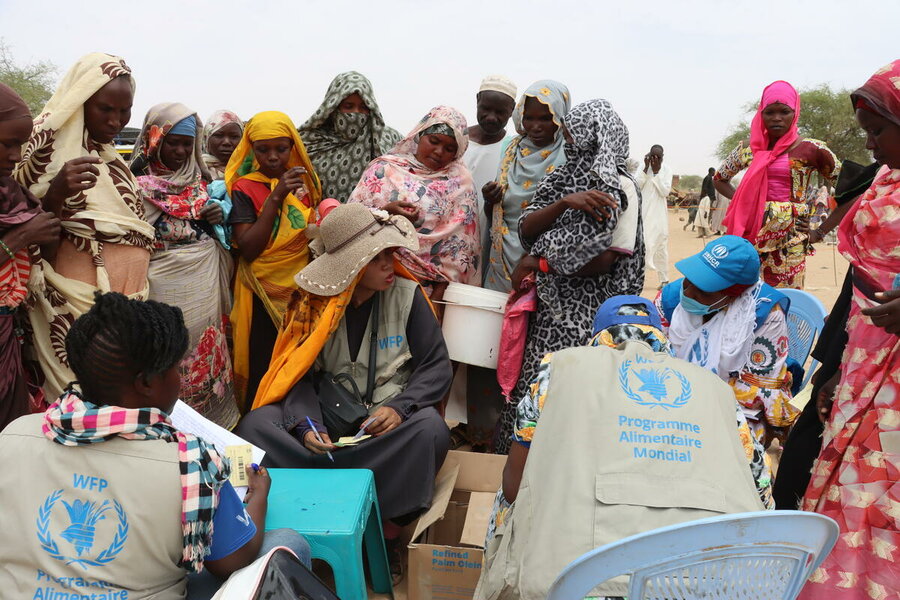
Here, too, food prices are rising swiftly along Chad’s border with Sudan.
“It’s not going to just affect the border,” Honnorat says. “It’s going to affect eastern Chad overall. A lot of cargo like cereal and sugar was coming in from Sudan.”
He worries that if more refugees and the rains arrive, already scarce food at local markets – along with funding for WFP’s food assistance – will dry up entirely in the weeks to come.
“Today, it’s a real race,” he says. “We need to pre-position food immediately, because we know it’s going to be terrible. But we don’t know how many people are going to come.”
